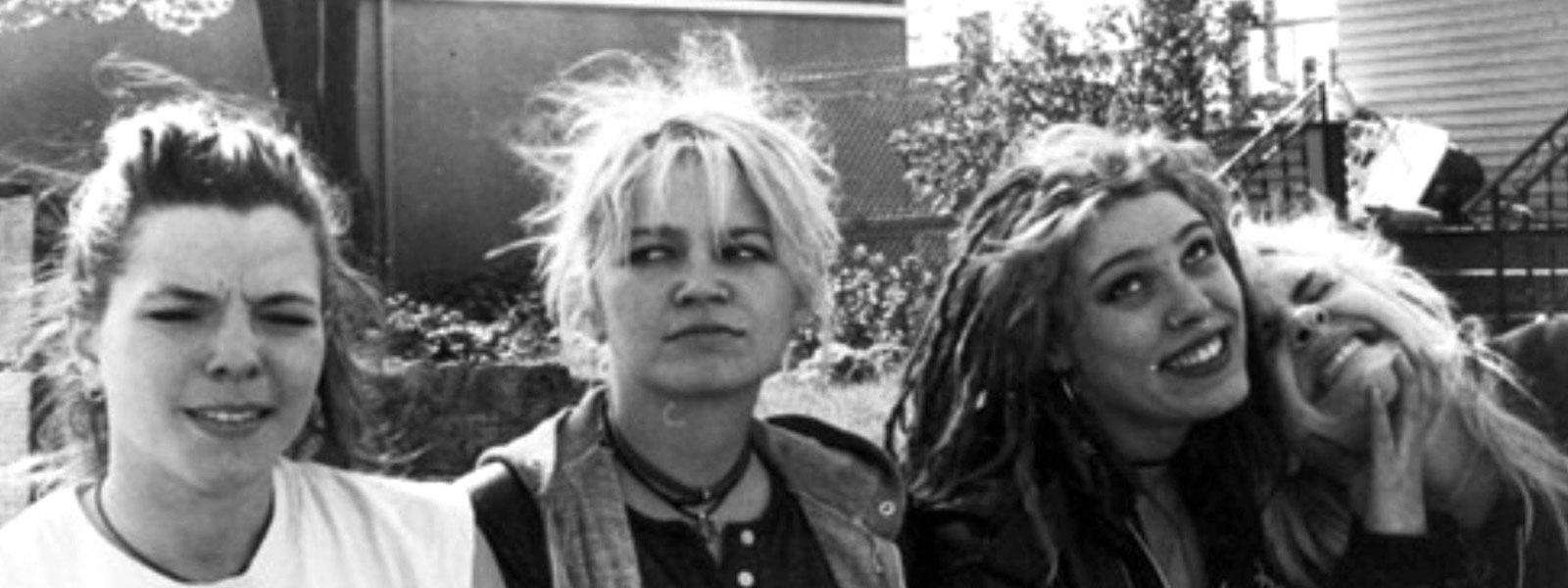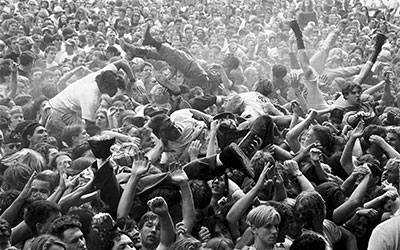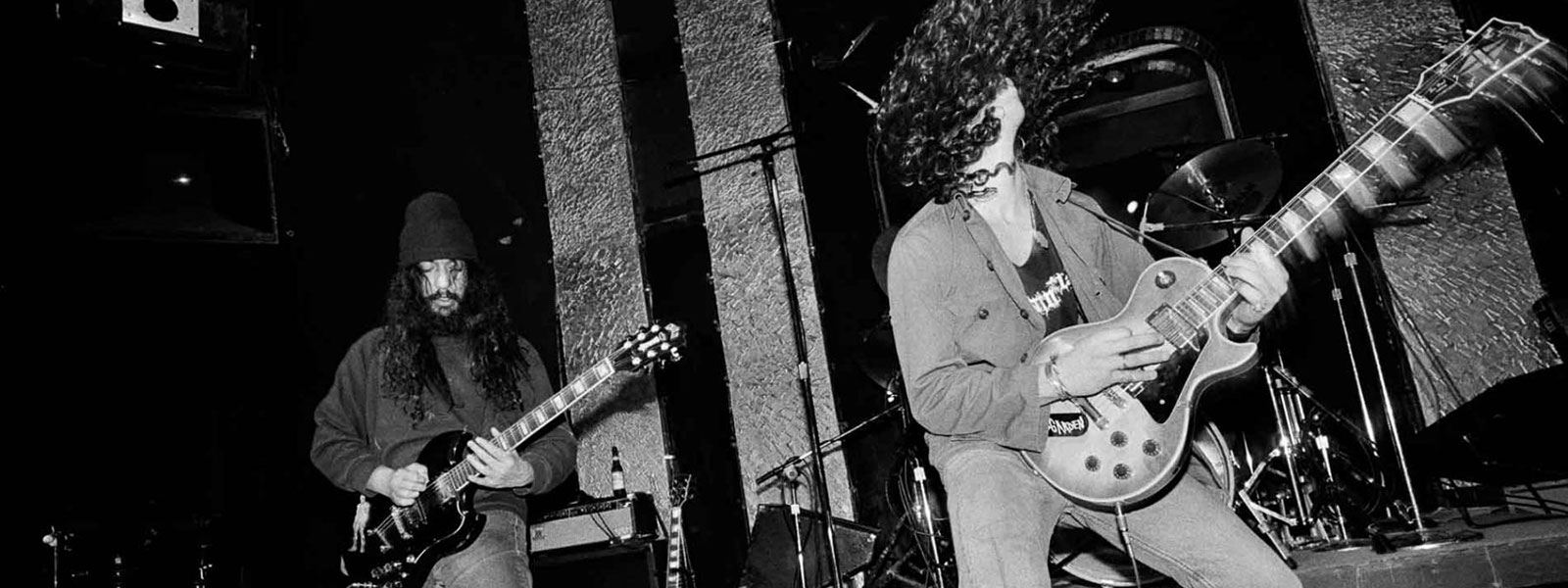One and done: 10 bands you forgot were on major labels
The "grunge craze" of early '90s meant major label contracts for a number of bands in the Seattle and pacific northwest region. But these bands did not reap the rewards, and their major label careers were over not much later than it started
Best Kissers in the World
Best Kissers in the World were based in Phoenix before heading to Seattle in 1990. Despite having a limited catalog (an eponymous EP for Sub Pop, and a couple singles), the Kissers were signed to major label MCA in 1993. They finally released their first album, Been There, that year, though you'd be hard-pressed to find many people who remember this album among the numerous regional acts at the time. Those who looked beyond the Pearl Jams and the Nirvana found a solid pop-rock band that added a little more diversity to the scene. In 1995, the band was dropped from their label just before the release of their second album -- an album that would not see the light of day until 2012.
Hammerbox
One of the more notable Seattle bands fronted by a female vocalist, Hammerbox formed in either 1989 or 1990 and released their wonderful self-titled album on Daniel House's C/Z Records in 1991. The album would eventually get the band signed to a major, A&M, for the 1993 release of the band's fantastic follow-up album, Numb. However, a lack of promotion meant the album never really took off, and eventually infighting within the band left caused lead vocalist Carrie Akre to quit to form another band, Goodness. Despite being a fantastic album, Numb has been relegated to the bargain bin.
Hater
In 1993, Soundgarden members Matt Cameron and Ben Shepherd, along with ex-Monster Magnet guitarist John McBain, formed the psychedelic garage rock band Hater. Perhaps due to Cameron and Shepherd's association with A&M, the band was able to sign to a major label for their debut. However, despite the association with Soundgarden, the band never took off, possibly because the label didn't do too much to promote it, but also because the band sounded nothing like Soundgarden. The band recorded a second album in 1995, but the album would not be released until 2005 on the small imprint, Burn Burn Burn.
Flop
Flop was fairly well known among Seattle music fans, despite very little in common what people referred to as the "Seattle Sound." Their debut album on Frontier Records drew the attention of music scouts, and Epic signed the band at the peak of the popularity of the so-called Seattle sound. As it was for many smaller bands, the band's major label debut, Whenever You're Ready, was pretty much ignored by the label and the band was dropped after poor sales. Flop stuck together to release their final album, but the band broke up soon after the release of that album.
Minus 5
The Minus 5 were a group led by Scott McCaughey with a rotating roster of musicians that included Peter Buck of REM, Ken Stringfellow and Jon Auer of the Posies, that got started around the peak of grunge but didn't release an album until 1995. Even with the Seattle scene no longer in vogue, the band was able to snag a record label contract with Hollywood Records, who released the band's second record, The Lonesome Death of Buck McCoy, in 1997. This would be the band's only album on Hollywood, but the band continued releasing albums on the Yep Roc label.
Pond
The original Portland-based Pond (not to be confused with the Australian band that later stole their name) were part of the Rose City music scene that some in the music industry were calling the "next Seattle." They released two albums for Sub Pop before they were picked up by the Sony imprint Work to release their third album, Rock Collection. The move to a major did very little to build the band's fanbase outside the pacific northwest, and the band found itself homeless in 1998. They broke up soon after.
The Rockfords
The Rockfords was a reunion of sorts, reuniting former Shadow bandmates Chris Friel, Rick Friel, Danny Newcomb and now-Pearl Jam guitarist Mike McCready, fronted by former Hammerbox/Goodness vocalist Carrie Akre. With the star power of the band's members, they signed to Epic who released the band's debut, self-titled album. Despite McCready's involvement, the band never reached a large audience, and though the band never officially broke up, the band members continued with their other projects.
Satchel
Satchel was created as a project for Shawn Smith while his other project, Brad, went on hiatus. Like Brad, Satchel also signed with Epic Records before even releasing an album. The band released two albums on Epic before going on hiatus while Smith worked on Brad again. Smith had the rare distinction of having two bands release debuts on majors as both Brad and Satchel skipped the indies.
Seaweed
Tacoma, Washington's Seaweed had been a mainstay on Sub Pop for a few years, releasing an EP and two full-length albums on the iconic Seattle label before moving onto to Hollywood Records. The punk outfit failed to break into the mainstream, despite gigs opening up for the likes of Bad Religion and Green Day. Seaweed released one album, Spanaway, before returning to an independent, the North Carolina-based Merge Records.
7 Year Bitch
7 Year Bitch had built up a solid fanbase in the pacific northwest era, releasing two albums on C/Z Records before going to the majors, signing with Atlantic for the release of their third album, 1996's Gato Negro. The album would build up the band's popularity, though obviously not to the level the label expected. Gato Negro would end up being the band's last.
Sky Cries Mary
Seattle's Sky Cries Mary featured the husband and wife team or Roderick Rand Anisa Romero on dual lead vocals. Like many bands in Seattle in the late 1980s and 1990s, they didn't play what was "typical Seattle grunge." However, they were sucked up in the major label signing craze that took over the northwest music scene, signing with Capitol. Their failure to sound like a Pearl Jam or Nirvana ripoff and the re-occuring theme of poor promotion meant that the band never had their breakthrough. Unlike many others, the band continued to soldier on even after leaving the majors.
Truly
Truly is one of those truly-forgotten and underrated bands of the Seattle music scene. During the Seattle signing craze, they signed to Capitol Records in 1993 and released what the band considers their best album, Fast Stories... from Kid Coma, two years later. But critical acclaim didn't lead to high visibility or record sales, and the band moved to the Chicago indie label Thick for their next album.


